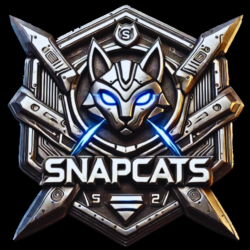Merchant

Unlocking the Merchant Class
The Merchant is an elite crafting and economic profession in SnapCats, specializing in trade, market management, and crafting high-value goods for profit. Merchants play a critical role in the game’s economy, operating shops, auction houses, and trade networks that supply players with essential resources, crafted items, and consumables. To unlock the Merchant class, players must master crafting and resource management skills and have a deep understanding of the in-game economy.
Basic Classes Required to Unlock Merchant:
-
Artisan (Basic Class):
- Why It’s Important: The Artisan class provides foundational crafting skills and resource management, which are critical for crafting goods and managing inventory in a merchant’s shop or trade network.
- Key Skills to Unlock:
- Crafting Efficiency: Reduces the resource cost of crafting items, improving profitability for merchants.
- Resource Gathering: Increases the ability to gather materials used in crafting goods for sale.
-
Entertainer (Optional but Beneficial):
- Why It’s Important: The Entertainer class focuses on social interaction and charisma, which can enhance the Merchant’s ability to attract customers, negotiate better deals, and form alliances in trade.
- Key Skills to Unlock:
- Charisma Buffs: Improves social standing and the ability to negotiate higher sales prices or better deals with other players.
Skill Tree Progression for Merchant
Once the Artisan class is mastered, players can unlock the Merchant class and progress through skill trees focused on shop management, trade and market strategy, and crafting goods. Merchants serve as the backbone of the game’s economy, facilitating trade between factions and individual players.
Merchant Skill Tree:
-
Shop Management:
- Allows the Merchant to set up and operate a shop where players can buy and sell goods. Merchants can customize their shops with different types of goods, displays, and pricing models.
- Example: A Merchant can open a shop in a faction hub, specializing in selling high-quality armor or rare resources to other players.
-
Market Analysis:
- Grants the ability to analyze market trends, helping the Merchant identify which items are in high demand and when prices are likely to fluctuate. This skill increases profitability by allowing the Merchant to buy low and sell high.
- Example: The Merchant notices a high demand for rare metals due to faction wars and adjusts prices accordingly to maximize profit.
-
Bulk Crafting:
- Increases the Merchant’s ability to craft items in bulk, reducing the time and resource cost for large-scale production. This is especially useful for supplying faction members or creating consumables for the market.
- Example: The Merchant can mass-produce consumables like healing potions or food items to sell to players engaged in PvP battles or faction missions.
-
Trade Networks:
- Allows the Merchant to establish and manage trade routes between different factions or players, automating the buying and selling of goods across regions. This skill increases passive income by maintaining steady trade flows.
- Example: The Merchant sets up a trade network to supply both the Solari Syndicate and Voidborne Dominion with weapons and armor, earning a steady income from both factions.
-
Auction House Mastery:
- Unlocks the ability to use and manage auction houses, where players can list and bid on high-value items. This skill enhances the Merchant’s ability to control pricing and manage high-ticket sales.
- Example: A Merchant lists a rare, high-quality piece of armor in the auction house, generating a bidding war among players and maximizing the final sale price.
-
Merchant Guilds:
- Grants access to exclusive Merchant Guilds, where players can collaborate on trade deals, share resources, and create large-scale crafting projects. Membership in these guilds provides access to rare resources and discounts on bulk materials.
- Example: The Merchant joins a guild specializing in rare resource distribution, allowing them to access discounted materials for crafting high-value goods.
-
Negotiation and Bartering:
- Improves the Merchant’s ability to negotiate better deals with NPCs and players, increasing the profit margins on trade deals. This skill also increases the success rate of bartering for goods.
- Example: A Merchant negotiating with a Neutral player can secure a better price for rare resources, increasing profitability in their shop.
Pros and Cons of the Merchant Class
Pros:
-
Economic Power:
- Merchants control the flow of resources and goods in the game, giving them significant influence over the economy. This makes Merchants valuable allies for factions and players looking to trade or acquire high-quality gear.
-
Passive Income:
- By setting up shops, trade networks, and auction house listings, Merchants can generate passive income even when not actively playing. This allows for a steady flow of resources and credits to fund other ventures.
-
Customizable Shopfronts:
- Merchants can customize their shops with a wide variety of goods, allowing them to specialize in niche markets or cater to the needs of specific factions or player groups.
-
Access to Rare Resources:
- Through trade networks and Merchant Guilds, Merchants can gain access to rare and valuable resources that other players may not be able to find, allowing them to craft and sell exclusive items.
Cons:
-
Non-Combat Role:
- The Merchant class is entirely focused on trade and crafting, with no combat abilities. Merchants must rely on their business acumen and economic strategies to succeed rather than direct combat.
-
Resource-Intensive:
- Merchants require a constant supply of resources to craft goods and maintain their shops and trade networks. Resource shortages can negatively impact their ability to produce goods and make a profit.
-
Market Competition:
- Merchants must compete with other players for control over the market, and pricing wars or undercutting by rivals can reduce profitability. Merchants must stay vigilant to stay ahead of the competition.
The Merchant class is the cornerstone of SnapCats’ in-game economy, providing players with the goods and resources needed for combat, crafting, and exploration. Merchants can set up shops, manage trade routes, and craft high-value items for sale, making them a key player in the game’s economy. While they lack combat abilities, their ability to generate passive income, control market trends, and access rare resources makes them a valuable profession for those who enjoy economic strategy and trade. Players who love crafting, managing shops, and trading will find the Merchant class to be both profitable and rewarding.
Snapcat Token is at the forefront of the Web3 revolution, offering an innovative platform where gaming and digital collectibles merge seamlessly. Our token facilitates a vibrant ecosystem driven by player engagement and community growth, ensuring a dynamic and rewarding experience. Embrace the future of blockchain with Snapcat, where every transaction propels us forward.
Revolutionizing Web3 Gaming and NFTs
©2024 – Snapcats LLC. All Rights Reserved.

